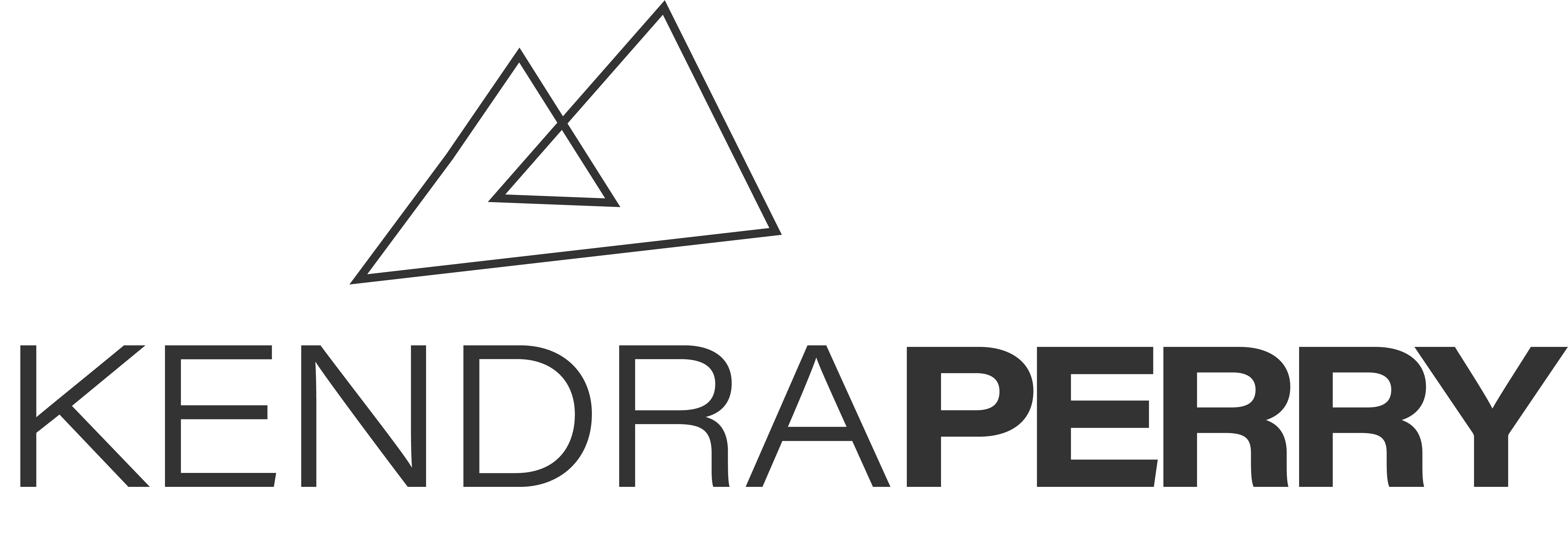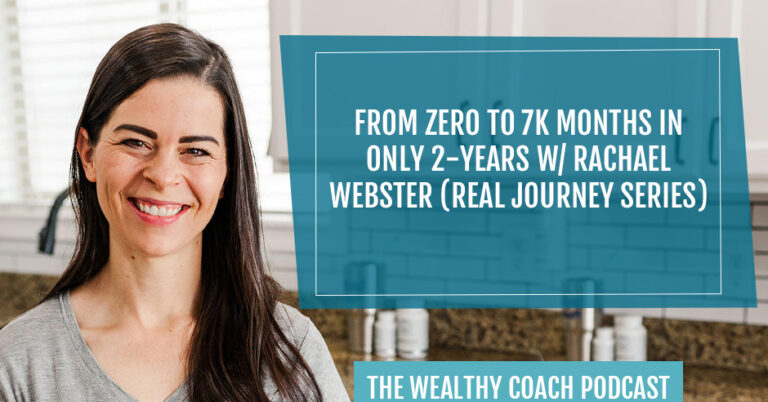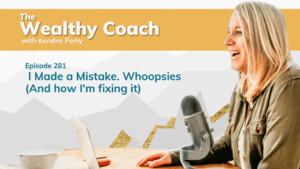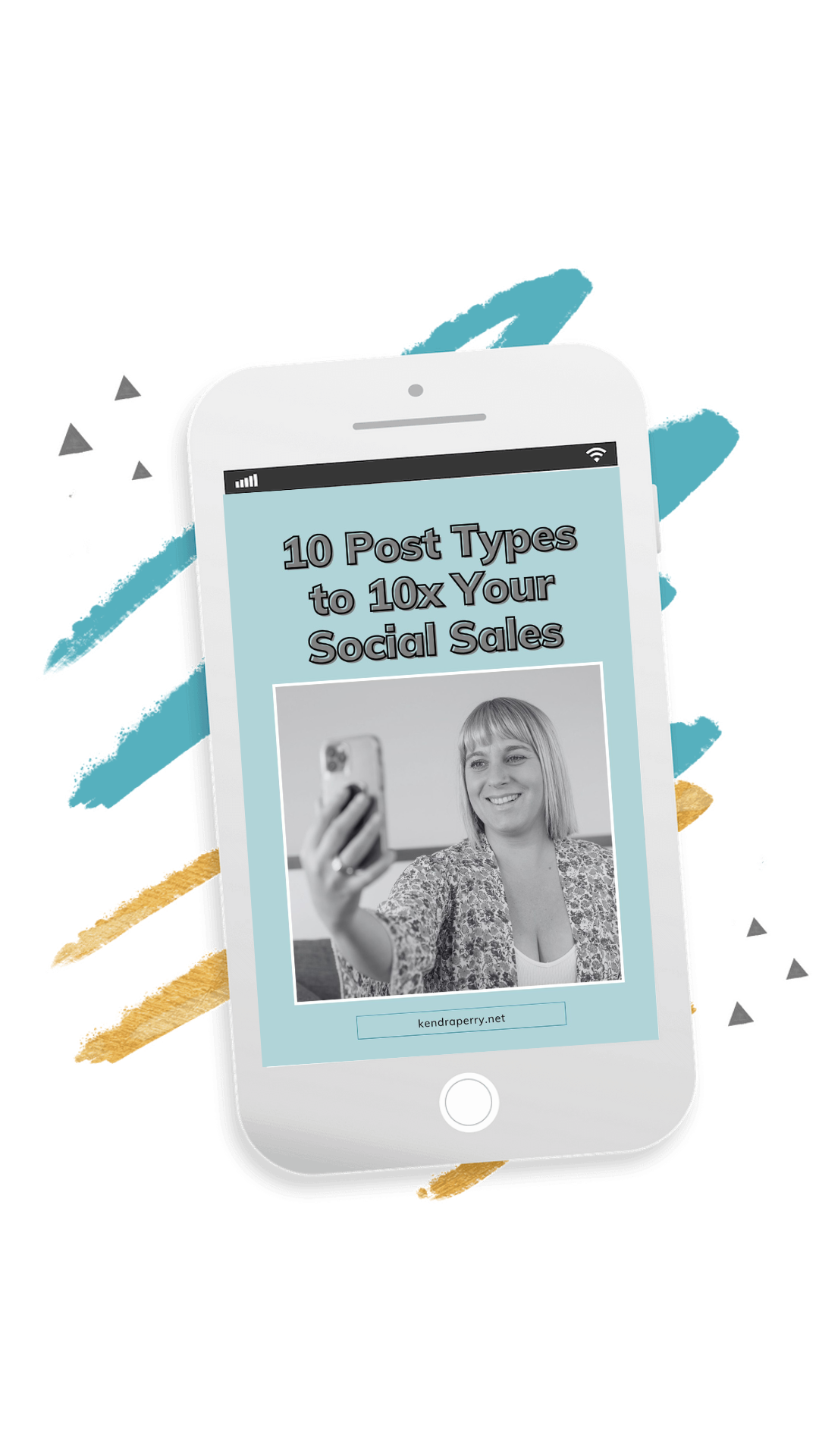Tackling the roller coaster of entrepreneurship often feels like navigating uncharted waters, but Rachael Webster, a health and wellness coach, shares her inspiring journey from starting at ground zero to reaching a remarkable monthly income of 7K within just two years. In this episode, Rachael shares her highs, lows, and incredible story. She walks us through her entry into the world of health and wellness coaching. Throughout the episode, Rachel discusses the double-edged sword of social media, the secret to successful pitching, outsourcing for efficiency, and more. Listen now to gain a fresh perspective on business growth, self-care, and the real challenges and triumphs of entrepreneurship! Remember, the journey is real, and so are the lessons learned along the way.
—
Listen to the podcast here
From Zero To 7K Months In Only 2-Years With Rachael Webster (Real Journey Series)
Rachael, could you tell me a little bit more about what you do and who you help?
I am an integrative health coach and also have a license as a pharmacist. I worked in the pharmacy for many years. A couple of years ago, I had my own, health journey of sorts where I had some health issues and I couldn’t figure it out. It was about a five-year journey of having these weird symptoms. I finally was diagnosed with Hashimoto’s and hypothyroidism. That’s where I began my journey into, “How can I support my body holistically?” After starting to make some of those changes, changing my diet, my lifestyle and things like that, the results and my symptoms were what pushed me forward to become an integrative health coach and help others with hypothyroidism and Hashimoto’s. I focus on helping those people.
Many of us have our own journey and that’s a big reason why we get into this. When did you come to HCA? it sounds like it was spring 2021. It’s been over a couple of years. When you joined HCA at that time, what was happening in your business? Where were you at? What were you struggling with?
I was brand new. October 2020 is when I was like, “I’m going to be a coach. I’m going to start posting every day.” I was a brand-new coach. I didn’t know what I was doing. I was winging it. I came across another health coach that does thyroid and I asked her because she took your course. I was like, “What did you think? I need help.” If you don’t see what other people are doing, you’re flying by the seat of your pants. I don’t even know if I’m doing this coaching thing right. I maybe had one client or something at that point. My friend recommended you, so I took it. took your course. I jumped all in because I was brand new. I didn’t know what I was doing at all. I had no program or put together anything.
Did you work at all? Had you worked at all with any clients at that point?
I’d only had one client before that.
Before you came into HCA, did you find what you were doing wasn’t working? Were you having any success? Did you get any training in your health coaching certification?
Very little training. Towards the end, they talked about business and how you set up packages and but it was broad. I was like, “I’ll do this three-month package and hopefully, this will work.” Especially that first client, I didn’t charge hardly anything, and aside from working with a family that I had practiced on, but this first client, I wasn’t getting the results that I learned in my coaching courses. I was at a loss.
I’m so glad you came to HCA. That’s great. You’re like, “What am I doing?” I find that’s typical of a lot of institutions, health coaching certifications. They might give you a little bit of business, but it’s not enough to do anything with, unfortunately. When you came into HCA, was there anything that surprised you? What was the thing where you were like, “I didn’t know that I was supposed to do this?”
You simplify. You go from nothing to creating everything, especially the backend. I thought I was going to be a pharmacist forever. I was never going to have my own business. You help with that backend where you’re like, “That is a little bit more complicated than I thought,” but then you help simplify that. That’s what I loved about the HCA course. I would not have known any of this and probably would’ve struggled through it for much longer if I hadn’t taken the course.
When you started, we dialed down your niche in Hashimoto’s. That’s what you’re focusing on. We built the program and started getting your marketing and sales dialed. What did that journey look like to implementing it? Were you like hit-the-ground running or did it take you a little bit of time after the course to get everything in place?
I hit the ground running because I had one client. It was a matter of tweaking my program because knowing the niche helps a lot. You can hone in on what you’re talking about, the program, and the steps that you’re taking those clients through. You’d have to adjust a little bit per person and things like that but in general, knowing what those steps are was helpful.

How long did it take you to get your next client after that first?
I believe during HCA, 2 or 3 clients I got signed up.
How are you running your program now? Are you running it as a one-on-one? Are you doing a group program? What does that business model look like for you?
After I took HCA, I did your group course too. I do mostly one-on-one still. I have done a couple of group courses which is helpful because one-on-ones, you only have so much time in the day. I have done a group course and revamped it each time. Your group course also helped because again, going from one-on-one to one-to-many is so different from one-on-one. That was helpful to set up that group course as well.
I’m curious along the way, as you were going to one-on-one, moving into group, what were the biggest challenges for you?
Going from one-on-one, it’s easier because you’re following up with one person. When I shifted to that group program, it was different because you’re trying to keep many people engaged and it’s hard sometimes to almost blame yourself if somebody falls off or somebody doesn’t follow through. You’re trying to do all these things to bring them back in, but they’re not responding. I had to learn the hard way that you can want it bad for them, but you can’t make them make the changes. Someone might sign up with good intentions, but if they’re not ready, that’s not your fault.
That’s a hard one for a lot of us because I still struggle with this sometimes too. I’ve been doing this for a long time. People come in and I want to see everyone succeed. Ultimately, you’re right. Some people aren’t ready or, in my case, some people maybe glorify what it’s like to have a business. They’re like, “This is not what I thought it was going to be,” and that happens. You’re right. We can only do our best to provide the best program possible, be there, and reach out. Ultimately, they’re the ones who have to show up.
That was probably one of my hardest lessons to learn.
You’ve done quite well on social media. When I reached out to you, you had 20,000 followers. I would love it if you could tell the audience, how did you grow that much? That’s a pretty decent-sized following and I’m curious what you’ve done to get there.
When I took HCA, I had a reel go viral. I don’t know if you remember this.
I do remember this.
I was at 1,000 when I was in HCA. I had a reel go viral and I was like, “Kendra, how do I handle this? It was overwhelming.” I jumped from 1 to 7,000 within a couple of weeks. It was crazy and overwhelming. What I’ve learned from that is that people might’ve liked my reel, but not all of those people are my ideal client. For a while, I feel like I struggled with getting anyone to sign up because no one was responding or interacting with my content.
I’ve learned the hard way that having that genuine interest in helping people, sharing education, that knowledge, those ones are going to gravitate towards you. I’ve slowly grown. I’m almost three years this 2023 on Instagram. I remember you saying in HCA that the first three years are the hardest. I’ve always kept in mind that I’m putting in that work because I know it’s going to happen for me.
It’s grown this much in those few years. I’ve been consistent with sharing that education, sharing my story too, because I was once in that place where I felt hopeless. I didn’t have any answers and had all these symptoms that were unexplained. Being on the other side of it, I always try and share that because there are other people out there who still feel that way. I want to give that hope, too, where they can feel good again too.
I always say going viral is like a double-edged sword. It’s great. You get all these people coming into your business, but it does bring a lot of the wrong people in too. For whatever reason, people hit follow and they don’t care. It is overwhelming. With some people, this one woman who I know had a TikTok get 4 million views and she was like, “It ruined my self-esteem for a year because with that came so many trolls and hate.” She left Tik TikTok and it was a terrible thing. You got to be careful what you wish for. With that reel going viral, did you get some hate or was it mostly positive?
I got a little bit, especially mostly on spelling and I’m like, “Come on, people.” I’m not an English major. I’m very much like scientific brains. I’m going to make mistakes. Throughout this journey, you’re always going to have someone who calls you out on something. I was called a witch doctor and things when I was brand new. I’m like, “Come on. There’s going to always be those trolls and people who are putting you down.” Focusing on those people who are constantly telling me, “Keep sharing what you’re sharing. Thank you for doing what you’re doing.” There are still times where I get some hate and then I’m shutting down for the day because we’re still human. It still hits your heart sometimes, even though you’re trying to help people.
In the end, sometimes you’re like, “I’m going to go cry in the shower and then I’ll be fine.” You’ve been successful and I’m curious if you had some advice for the audience, for people who are maybe in their first year. They’re in that real big struggle time where they feel nothing’s working, “I’m talking to no one. What am I even doing?” Do you have any words of encouragement for them?
Keep in mind that the first three years are about building that rapport. People are watching even if they don’t like or comment. I still get people who come out of the woodwork now and are like, “I’ve been following you forever. I’m ready now.” If I would’ve quit a year ago or whatever, that would’ve never happened. Keeping that in mind that it takes time and people don’t trust right away. You got to keep showing your personality and those people will automatically start reaching out and gravitate towards you.

It’s hard. It is not easy. I always think that the first three years are the hardest. I always keep that in mind, “I’m almost to that three-year mark. I’m getting there.” Even in those three years, there’s growth there. Even if it’s within you, thinking back to when I first started, how much I’ve grown. It’s amazing what this will do to do for you.
It’s such a good thing to keep in mind because it’s true. The first three years are the hardest and you got to stick with it. I love what you said about you don’t build trust automatically and even though people might not be engaging, they’re watching. This is important for health and wellness coaches because you’re talking about sensitive topics. You’re talking about Hashimoto’s and everyone wants to talk about their hair loss, the fact that they’ve gained 30 pounds, or they feel like crap.
Not everyone wants to be commenting in a public forum or even a niche like infertility, people don’t necessarily want to talk about that because it’s embarrassing or there’s shame around it. You do get a higher volume of people who are creeping in the back. They’re watching. It does take time. I get this happening as where people have been following you for years. I’m like, “Who is this person? I’ve never seen them.”
It’s almost like developing that sense of trust. You’re like, “I trust that what I’m doing is impacting people and eventually, those people are going to reach out.” Can we talk a little bit about income? When you came into HCA, it sounds like you’d made a small amount of money from clients. You said before the show that you’re not good at tracking. Can you estimate? What would you say your monthly income is now?
I’m probably around $7,000 a month. When I first started, my first client was $350 for a 4-month package. She was probably my hardest client. I haven’t gotten to that point overnight. It’s taken this time and slowly increasing my package prices and things like that. Getting that consistency is where it slowly grows over time.
I want to congratulate you on that because that’s amazing. Let’s celebrate that because it’s been a couple of years since you’ve done HCA, $7,000 a month. You’re maybe $1,500 or $1,800 off from doing six figures and doing what a lot of us are going for in a couple of years. You’re like, “It takes time.” It’s hard but in what other business do you get that raise where you go from $350 to $80,000 or $90,000 a year? When you put that into context, that’s huge. It’s such an opportunity. That’s amazing.
I’ve worked full-time and then did this on the side. I’m getting ready to quit my full-time job so that I can do this full-time because I know that I’m to that point where I can’t stretch myself anymore. I got to focus on one of those.
That’s so amazing and I love the way you’ve done it. This is a smart way to do it because it does take time. Unless you’ve saved up a nest egg of money, it can be stressful to go full-time right away in your business because it’s inconsistent. For the first three years of my business, I worked part-time for Functional Diagnostic Nutrition and that was great. That paid the bills while I figured everything else out. That’s a smart way to do it because then, the financial stress isn’t driving all your decisions.
That’s helped me because I’ve been able to invest in programs like yours. I’m like, “I don’t have time to figure this out.” I’m working full-time. It’s hard to invest in yourself, but it’s so important. Whether it’s business side or personal growth, it’s so important because you need that to continue to progress.

At this point, I love investing in myself because I always get something. I always grow. I always learn something. It’s hard at the beginning when you’re not making money. It’s hard to make that jump. The amount of time you can waste trying to figure it out on your own is a lot.
I learned that the hard way. It’s like, “Okay, fine. I’ll take this course.” I was so glad I did because it probably would’ve taken me months to figure any of that out on my own.
I want to shift now into some of the coaching that we’re going to do. You were wondering. One of your questions was, “How do you pitch yourself when you’re not in a launch?” Your baseline is your one-on-one and then you launch a group every now and then. You’re wondering how to pitch yourself in between launches, when you don’t have a group available, or for your one-on-one. Can you clarify?
Yes. I struggle with pitching myself and I’ve been doing this for a while, but I still like, “Am I talking about my services too much?” I want to get your take on this. Right now, I’m not in a launch. I’m taking on one-on-one clients. Is it something that I should be pitching a call to action on each post or each reel or should I do it a couple times a week? I struggle with that because I almost feel like it’s too much sometimes or maybe not enough. I’m probably not enough, to be honest, but I always am curious what other coaches’ thoughts are on that.
You should be pitching yourself constantly in every post. We need to be selling all the time. I like to think of it as indirect and direct. When we’re saying, “Sign up for my program,” that’s more direct. We can also do posts where they’re seeding awareness. I like to think when you’re putting out your content, constantly mentioning your program. If you come onto my show, I’ll be like, “This HCA student asked me this thing. This is something we teach our students inside HCA.” It’s not directly pitching, but it’s still selling the program. I like to split it up between that.
During a launch, you’re doing the heavy pitch. I still think outside of a launch, if your one-on-one is available, you want to do a heavy pitch, but you can be rotating between indirect where you’re mentioning, talking about, or sharing a client case, a case study, and how someone went from A to B to C. Maybe it’s something that’s educational, but you’re mentioning that you teach this inside your program or a question that one of your clients asked you or something like that.
It’s that awareness where every time they’re reading a post, they’re hearing about your program in some way. There’s a direct call to action where it’s like, “DM me. Start if you want to learn more about my program.” The other one would be driving to your free offer, and getting people on your email list. You can do the same thing with your email content.
I love that. Those are great tips. I’m going to start doing that.
We have to be the biggest ambassador for our program. A lot of people are afraid to sell. I did a show on this where I’m like, “No one would ever expect Target not to sell.” Target’s a business. It would be so weird if you went into Target and Target was like, “What’s up? Do you want to be my friend? Here’s a cup of coffee. Nothing to sell here. Let’s just hang out.” All of a sudden, they were like, “Buy my swimwear line.” You’re like, “What? I thought we were friends.”

We have to accept that we’re businesses and no one’s going to shame a business to sell. You’re still providing value and connection, but you’re not on social media for any other reason for this. We don’t want to be in people’s faces all the time, but a little bit of that is good. That indirect selling is you’re the biggest ambassador. You should feel like, “My program is so amazing and you’re silly for not signing up.”
I love that.
The next thing you’re wondering about is hiring. Have you hired at all?
I have only one contractor. She does my emails. She takes my posts and turns them into emails for me. The email was like, “I know this is important, but it’s something I don’t love.” She takes care of that for me.
What else are you looking to outsource? When you think about the things that you do in your business, what are the things that you hate doing and you’re not good at?
Probably the backend systems. If I’m setting up a new program and making sure everything is all setup, the techy stuff.
You need a tech VA. There are people who do that. They’ll set it all up for you. They’ll test everything and make sure everything works. If you’re doing a webinar, they will be on the webinar, making sure everything’s set up. Putting out your call-to-action links, helping people who are like, “I don’t hear anything or whatever.” Usually, they need to restart the meeting or whatever. That’s what you would need. In terms of hiring, because you’re wondering, “Where do I start looking for this person?” the first place to start is networks.
I would ask communities if you’re in health coach groups or any network groups that you’re in. I would probably start there and see if you can get a recommendation or referral from someone. I feel that’s usually the best place. My next go-to place is Upwork.com. You could also use Fiverr. There are a few other ones. I like Upwork. I’ve always used it.
With hiring something with anyone, it’s about the job posting and the expectations. You want to be clear about what you’re looking for and what you expect. When I put out a job posting, I’ll put even communication expectations. We communicate through Slack and if I send a message, I expect a response within 24 hours, even if it’s just you saying, “I saw your message. I’m going to get to that tomorrow,” or something like that.
I put all the communication expectations and the turnaround time. With the tech VA, what’s going to be the turnaround time that you expect? If I ask you to do something, how quickly do you want it done? What are your platforms? I would list your whole tech stack. They know because you want someone who has expertise in those. If it matters, if they’re in the same time zone as you. Usually, with a tech VA where there might be a bit of back and forth, you’re going to want to make sure that they’re available during maybe North American business hours or something like that.
Good to know. I’m always nervous if you don’t know if they are going to be good or not. I’ve got a lot of networking groups that I’m in.
I would do that. I always hire someone on a probationary period. Usually, 90 days is great, and say, “We’ll see how this goes for the first 90 days. We will see if it’s a fit.” A piece of advice that I was given is going to sound mean, but I’ll explain. It is to hire slow, fire fast. What that means is to take your time finding the right candidate. Usually, I find it’s best to hire on qualities versus skills, but with something tech, you’re not going to want to have to train them. You’re going to want them to have those tech skills. Take time finding the right person. If you notice it’s not going well, take care of it quickly. I don’t mean fire them, but bring it up like feedback.
You can say, “I’ve noticed this is happening. This is what I need moving forward. Can you commit to that?” Take care of it quickly. If it doesn’t change, you can try one more time. I do three strikes and then if it doesn’t change, it’s not going to work. The worst thing you can do is keep someone around who’s not performing and they’re not doing the work.
I’ve learned the hard lesson in this. I kept someone for a year longer than I should have and it hurt my business. You have to give people lots of feedback. People are always looking for feedback. A good way to do it is maybe for your next launch, hire someone and say, “I’m going to bring you on for this next launch. If it goes well, then I’d love for it to be a permanent position.”
Thank you.
How does that feel?
That’s good. That’s probably the area I don’t love. That would be helpful.
I hired a tech VA. I’ve been doing my own tech for almost nine years. I finally hired one and I was like, “This is so great.”
That’s what I need.
It’s a lot of work. The last thing you were wondering about was you wrote, “What are your tips or best practices to shut off business and focus on personal needs? As an entrepreneur, this is hard to do, but also essential for my own health.” Are you finding that you’re thinking about your business all the time?
I’m much better than I was. When I first started, it was like you had to answer everybody’s questions right now and at all hours of the day. Now I’m better about that. I do feel like I’m always thinking about it and my husband’s probably like, “Quit talking about it. I’m sick of hearing about just the business.” I’m like, “Do you have any tips or anything where you’re able to shut that down and disconnect from it?”
I also find this challenging. Work-life balance when you run a business from home is a bit of a myth in a way. I find for me, what’s important is that I have no push notifications on my phone. Everything happens on the desktop and usually, right before the weekend, I delete any work-related apps. I need Instagram because I’m making stories sometimes.
I like my team to be able to reach me through Slack or something if they need something. I will delete apps on the weekend. This might not work for you, but I have to get out of cell service sometimes. On the weekends, I go into the mountains because when I’m in the mountains, there’s no cell service. There’s nothing else for me to do, but look at this view and read my book.
I don’t know if that’s available or if it’s even something you’d want to do. It’s something I struggle with. Sometimes I’ll do an energy clearing. I’ll try to do a little breathwork, clear everything out, and leave it in my office. I leave my phone in my office every night. I don’t bring it into my bedroom. For me, it’s about creating boundaries around mostly my phone because that’s what reminds me of work in a lot of ways.
That’s hard. I recognize that it’s a problem and I need to be better about it. Those are great tips.
Do you have any communities that you’re a part of or friends that do what you do?
Not here closely. I do have a lot of friends online and some groups where we bounce ideas and stuff off each other but not locally.
I don’t have any local friends either. That’s hard to find. For me, I have some business besties. When I want to talk about the business stuff, I try to talk to those people and I try not to talk about it to my partner or friends because they don’t know what you’re talking about.
My husband gets sick of it.
This is a big journey for entrepreneurs because I struggle with it too. All entrepreneurs, we all struggle with it because it is a bit all-consuming. It’s like your baby and it’s not a normal job where you leave at the end of the day and you can’t work on it. It’s always there available to you. I may not be the best person to ask because this is something I struggle with as well.
I appreciate those tips because we’re all learning through this process.
The more you can have your networks of business besties, the more helpful it is because then, you can bounce ideas off those people rather than annoying the people in your life. For me, it’s mostly boundaries around my phone that have helped me the most. When people message you and you might want notifications on because it’s a launch, but then you got to delete those apps and be diligent about that. I even tried having two phones once. I had a personal and a business phone and that was great except I don’t have the memory to find two phones. I was always looking for a phone and I couldn’t handle it.
I don’t think I could do that either.
Is there anything else? Any other questions you had for me?
I don’t think so.
Thank you. I appreciate you coming on. This has been great. I appreciate you sharing your story.
Thank you so much for having me.
if anyone wanted to reach out to you or stalk you on social media, how would they find you?
I am on Instagram mostly. I’m @Rach_HashimotosWellness. It’s long but even if you type in Hashimoto’s, I’ll probably pop up. That’s where I am mostly.
Thank you so much and thank you everyone for reading. As always, I appreciate you being here and I will see you in the next episode same place, same time where I help you become wealthy AF.
Important Links






